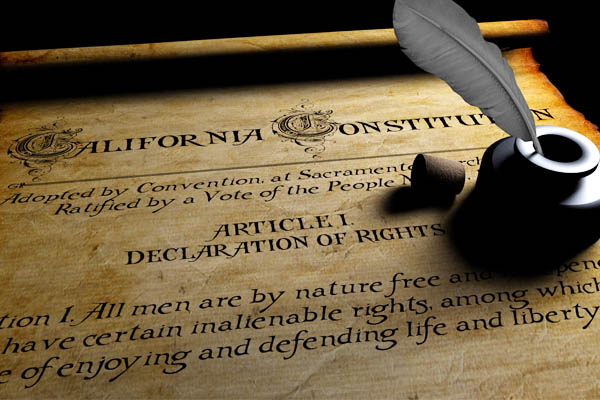Proposition 31 Will Weigh Down the Constitution


Of the 11 statewide measures on this year's California ballot, only one has drawn strong opposition from across the ideological spectrum: Proposition 31. Both the California Democratic Party and the East Bay Tea Party are urging their members to vote no, as are the conservative California Farm Bureau, the progressive California League of Conservation Voters, and the respected and independent League of Women Voters of California.
What has brought these disparate groups together is the complex maze of new laws proposed by Proposition 31. It's so convoluted that even some of the civic leaders who helped put it on the November ballot are now opposed to it, including former Republican (now independent) Secretary of State Bruce McPherson.
Several members of the California Forward Action Fund, which has spent $4.5 million so far in support of the initiative, resigned from the organization out of protest, saying the proposition "contains serious flaws" and "will further harm California."
That's because Prop. 31 was jam-packed with so many political theories and provisions that it will result in new layers of bureaucracy, more expensive government, continued gridlock in Sacramento, and less money for classrooms and kids. Much of the language of the proposition is so vague and open-ended that even experts say its effects on our state are impossible to predict.
Supporters of the proposition focus on just a couple of its facets. They say putting bills in print for three days before they are voted on and converting from a 1-year to a 2-year budget cycle will bring some change to the Capitol. Maybe so, but the multitude of other terms contained in Prop. 31 far outweigh any positive reforms.
To start with, Prop. 31 will create new layers of government by telling cities and counties to adopt "community strategic action plans" that allow local politicians to override, duplicate, and ignore state laws. That creates the potential for hundreds of cities, and each of California's 58 counties, to essentially establish miniature state governments, with their own rules when it comes to things like environmental protection and social services.
To administer those community plans, local governments will be able to siphon $200 million a year away from the state's General Fund. That means Prop. 31 will take money out of classrooms and away from public safety.
Worse still, if Prop. 31 passes, it will put an end to any increases in education funding for years to come -- even if more money is readily available. A portion of the initiative would prevent the state from increasing any budget line item by more than $25 million without finding a new funding source for the increase. That might sound good to some on the right side of the conservative spectrum, but get this: Prop. 31 also prevents tax cuts without finding equal amounts of money to replace them. This sets up a scenario for intensified political gridlock in the Legislature.
Never fear, Prop. 31 has a solution for legislative inaction: turn the governor into a king. It would give the governor unilateral authority to cut programs and funding simply by declaring a "fiscal emergency." California voters have voted "no" to that twice before -- under Pete Wilson's administration in the '90s and again in 2005.
Sure, all Californians want reform to fix what's broken in Sacramento. But even objective reviews of Prop. 31 say it will make government more expensive. The non-partisan Legislative Analyst's Office concluded it will increase costs by "tens of millions of dollars" every year and that its effects "cannot be predicted."
California's budget process is already a complex tangle of rules and restrictions; the last thing we need is a series of new laws that will only make government more complicated and cumbersome. And if the people who helped put Prop. 31 on the ballot don't even support it, how can California voters?



